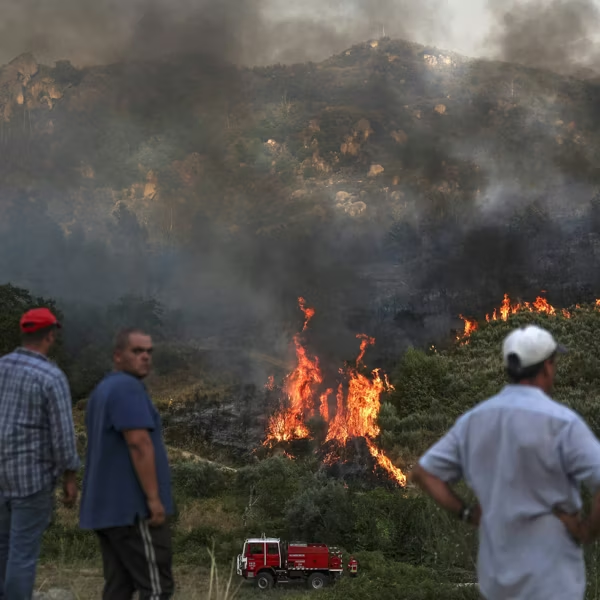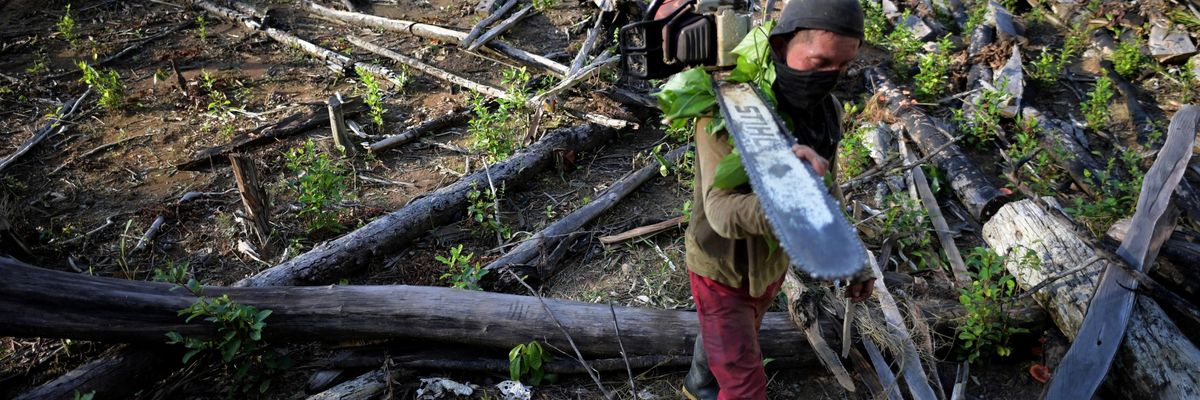Over 90% of the rainforest carbon offsets sold by the nonprofit organization that sets the world's leading sustainability standard "are largely worthless and could make global heating worse," an investigation published Wednesday by three media outlets confirmed.
For nine months, The Guardian, Die Zeit, and SourceMaterial analyzed scientific studies of Verra, "the world's leading carbon standard" in a voluntary global offset market worth $2 billion annually and growing. Verra's customers include major multinational corporations, and the analysis' findings cast doubts over the carbon offset credits the companies buy in order to label their products as "carbon neutral" or assure customers that they can consume their products or services without worsening the climate emergency.
"The implications of this analysis are huge," said Barbara Haya, head of the Carbon Trading Project at the University of California, Berkeley. "Companies are making false claims and then they're convincing customers that they can fly guilt-free or buy carbon-neutral products when they aren't in any way carbon-neutral."
According to The Guardian, key findings of the analysis include:
- Only a handful of Verra's rainforest projects showed evidence of deforestation reductions, according to two studies, with further analysis indicating that 94% of the credits had no benefit to the climate;
- The threat to forests had been overstated by about 400% on average for Verra projects, according to analysis of a 2022 University of Cambridge study;
- Gucci, Salesforce, BHP, Shell, easyJet, Leon, and the band Pearl Jam were among dozens of companies and organizations that have bought rainforest offsets approved by Verra for environmental claims; and
- Human rights issues are a serious concern in at least one of the offsetting projects, which involved home destructions and forced evictions in Peru.
"I have worked as an auditor on these projects in the Brazilian Amazon and when I started this analysis, I wanted to know if we could trust their predictions about deforestation," Thales West, a lead author on the studies, told The Guardian. "The evidence from the analysis... suggests we cannot. I want this system to work to protect rainforests. For that to happen, we need to acknowledge the scale of problems with the current system."
Co-author Erin Sills said: "I'd like to find that conserving forests, which conserves biodiversity, and conserves local ecosystem services, also has a real effective impact on reducing climate change. If it doesn't, it's scary, because it's a little bit less hope for reducing climate change."
Verra responded to the outlets' analysis by saying the paper's claims are based on "methods that do not account for project-specific factors that cause deforestation."
"As a result, these studies massively miscalculate the impact of REDD+ projects," the organization added, referring to the United Nations Framework Convention on Climate Change (COP) framework "to guide activities in the forest sector that reduces emissions from deforestation and forest degradation."
Die Zeit's Tin Fischer posted a pair of tweets pushing back against Verra's comments with a chart from one of West's studies.




